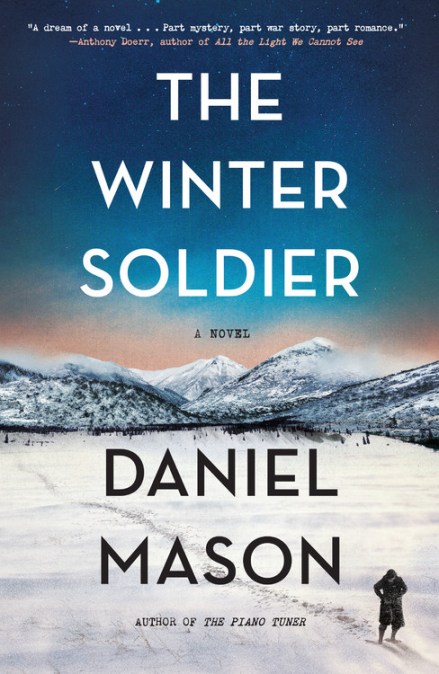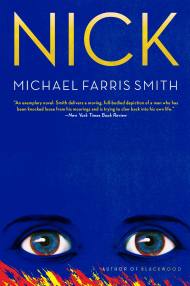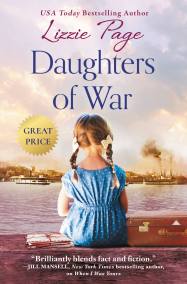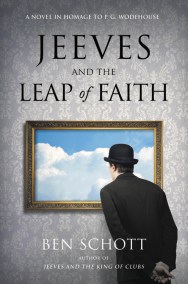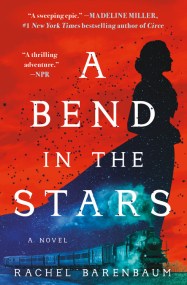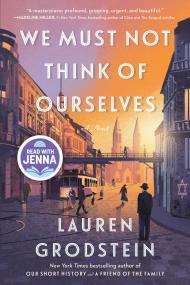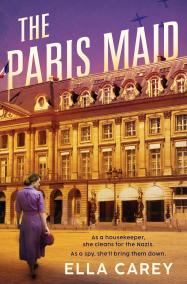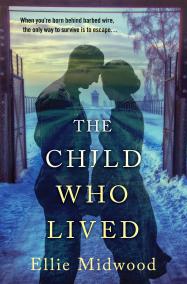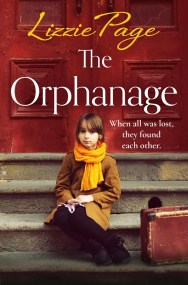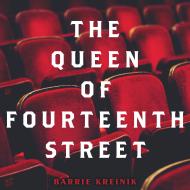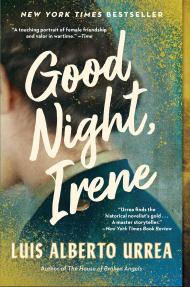It has been over 11 years since your last novel, A Far Country, was published. Can you describe how The Winter Soldier came about?
I think it is probably closer to 14 or 15 years— I began thinking of some of the characters back in 2003, during my last year of medical school. But I put aside those early sketches to work more fully on A Far Country. When I finally began working on The Winter Soldier full-time, it was a very different novel from the book I eventually would finish. I had originally been drawn to World War One and the interwar period because of my interest in the early study of the art of asylum patients, and the first version of the book involved a triangle of a patient, her husband, and her doctor. I struggled a lot with this version-- for almost six years and at least three drafts. Meanwhile, over the course of this time, I kept returning to this historical moment when the Austro-Hungarian army, utterly unprepared for the war, enlisted medical students with virtually no clinical experience for posts of extraordinary responsibility. As someone who had recently graduated from medical school, I was stunned to imagine these other students, across time and space, finding themselves suddenly in charge of entire field hospitals, facing horrific casualties, often terribly undersupplied. Increasingly, the book became about that experience, of being thrust into this new world.
Can you talk about some of the research you did for the novel?
I went to Vienna once, back in 2004, but for the most part, all of the research was through books. I have never been to the Carpathians, though I very much would like to one day. Instead, much of the natural world of The Winter Soldier is based on mountains and forests that I have grown up with, here in California, with transformations of flora and fauna from Polish botanical and zoological texts. Writing about the medicine was much more of a challenge. This was less because of the question of what wounds people had and how they were treated— there are medical manuals from the time that could help with this. Much harder was trying to put myself in the mindset of a doctor who doesn’t know what we know now, for whom a 50% mortality rate for an abdominal wound is expected, who can only dream of treatments that we now take for granted. In the book, Lucius fantasizes about a drug that can cure an infection as if it were a magical elixir; he has no idea that one day we will have the antibiotics that we do today. When he sees soldiers with symptoms caused by psychological trauma, he can’t find any guidance on how to treat them, or even what to call their suffering. Similarly, the nature of the “cure” he accidentally stumbles upon— using a barbiturate to treat what we would call today excited catatonia— is completely a mystery to him.
Can you talk a little about your own practice of medicine and teaching?
My clinical job title is inpatient attending psychiatrist— this a physician who works as part of a team of resident physicians, medical students, psychologists, nurses, occupational therapists, art therapists, social workers and others. I work on a inpatient unit, meaning that we take care of people in acute psychiatric crises, until they feel well enough to continue treatment in an outpatient program.
As for teaching, I teach two undergraduate courses here at Stanford. The first is called “Culture and Madness”, which I co-teach with the anthropologist Tanya Luhrmann, in which we look at diverse experiences of mental illness and how they are influenced by culture. The second, “The Literature of Psychosis,” uses a variety of texts— clinical, autobiographical, and fictional— to try to approach a better understanding of the subjective experience of psychosis.
How do you feel this practice influences your writing?
There is a long tradition of physician-writers, each of whom seems to have cultivated their own particular relationship to both fields. But I feel like in many ways, this is a question I am still trying to figure out. While on some level, I think it is fair to say that medicine can can offer a window into the internal world of other people, it is also a very particular one, and is far from privileged. Indeed, over time I have found that even in the encounter between doctor and patient, the “secret garden of the self” (to quote William Carlos Williams), remains very much hidden, not only to a physician, but the patient too. Indeed, the discovery of what lies in the “secret garden" can take a lifetime to learn...
At the same time, many aspects of my medical practice appear in the book in some way. I think the awe and terror that one feels in the face of responsibility is something I could draw from my own experience. Or the way one is taught by nurses and by patients. Or the slow medical coming-of-age that comes when our own loved ones fall ill, or when we meet patients' families and appreciate the impact of illness on lives other than that of the patient. In the novel, Lucius struggles with the distance a doctor can feel from a patient, when it is his nurse, Margarete, who is so intimately involved in the physical, practical aspects of care. This also something I have drawn from my own experience.
Medicine also has taught me an approach in which details are extremely important in capturing the essence of a description. One of my wonderful teachers from medical school, Dr. Lawrence Tierney, taught us to use Peterson’s Field Guide to Birds of North America as a model for succinct, clear description. He wanted us to look for a single sentence that would allow him to locate the patient among all the others on the ward. I find his words are still so true today, that I will understand my characters best if I can ground them in the physical world.
Finally, I might add something that sounds extremely obvious, but nevertheless, played a role in The Winter Soldier: being a doctor helped me write about illness. So much of medicine takes place in a different language, that I think there is an added challenge of writing from outside (or even across specialities; I needed constant help from friends who are surgeons, internists, radiologists). That said, I think some of the most insightful writing about medicine have come from writers who aren’t doctors— Woolf, Mann, Flaubert. This is true today. Pat Barker is not a psychiatrist, and yet Regeneration is a profound meditation on what it is like to be one. Emma Donoghue, in The Wonder captures all the biological, psychological, and social aspects of mental suffering so painfully and vividly.
What about the other direction? Do you feel writing has influenced your medical practice?
I feel this influence very clearly. There was a time when I worried about whether writing and all the discursive reading that makes up a writer’s life would distract too much from medical practice. At the same time, it is common in academic medicine for doctors to pursue research interests in non-clinical fields— I have friends whose primary interest are genetics or cell biology, both quite distant from clinical practice, and yet they would tell you that both inspire their clinical work in different ways. The question for me was just whether writing could. I did take a long hiatus from medicine, for 7 years between medical school and residency, and part of my decision to return came from the growing sense that time spent reading history and literature could help with me understand the experience of mental illness in particular and the experience of disease in general. For example: that works like Mrs. Dalloway or the science fiction of Philip K. Dick could help understand patient’s experiences of psychosis. Or that reading about the history of plant classification could clarify issues with current systems of psychiatric classification that I have always had a hard time wrapping my head around. King Lear is very useful for a psychiatrist working on a geriatric unit, taking care of patients full of rage over true or imagined Gonerils and Regans. And I could go on...
I think that writing also expands the territory for what one can be curious about. In writing about a wounded character, I would never want to just describe the wound; what is interesting for the novel are the ripples it creates. How does it change the character’s understanding of himself, his relationships with other people, his understanding of pity and bravery and purpose…? This is important for a doctor too. And the kind of quiet noticing that writing requires extends even into the mundane. To give one example, while I love my work as a physician, at times I have to deal with a lot of bureaucracy— electronic record requirements, insurance company requests, legal issues, broken, underfunded social services. I often dread it, but at a certain point, while writing about the bureaucracy of the Austro-Hungarian monarchy, I began to find myself increasingly curious about the human interaction with these inhuman systems. I figure that if writing can make dealing with medical insurance transcendent, it can transform anything.
What are you working on now?
Over the past decade or so, I’ve been working on a series of short stories, a book of lives of sorts. Some have been published— the story of a boxer, the biologist Alfred Russel Wallace, a station agent— but others remain in a rather pupal stage. So, I’ve returned to those, trying to coax new stories out.
